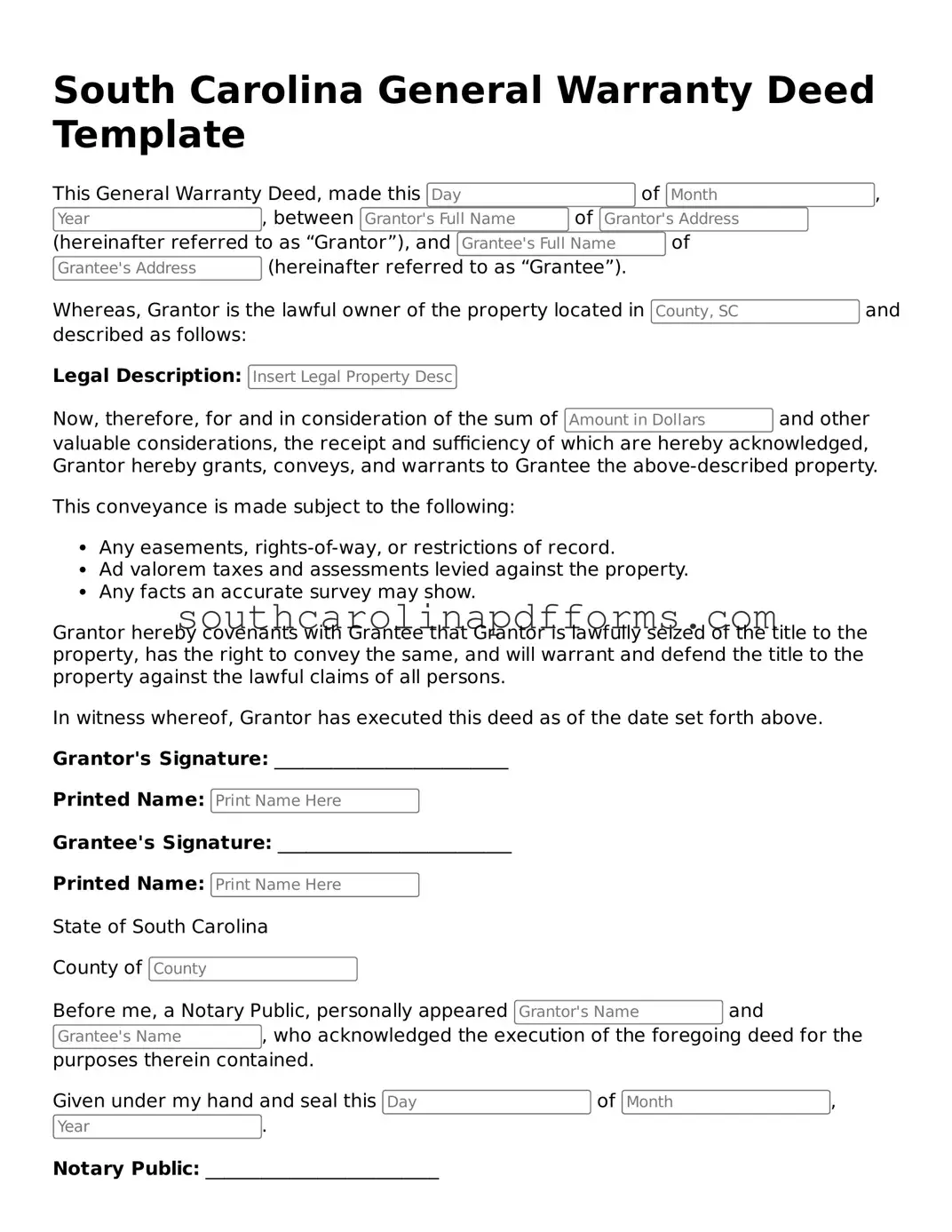When it comes to transferring property ownership in South Carolina, the deed form plays a crucial role in ensuring a smooth and legally binding transaction. This document serves as the official record of the transfer, detailing essential information such as the names of the parties involved, a description of the property, and any relevant conditions or restrictions. In South Carolina, various types of deeds exist, including warranty deeds and quitclaim deeds, each serving different purposes and offering varying levels of protection to the buyer. Understanding the specific requirements for completing a deed is essential, as it must be properly executed, notarized, and recorded in the county where the property is located to be legally effective. Additionally, buyers and sellers should be aware of the potential implications of the deed type they choose, as this can impact their rights and responsibilities after the transaction. Navigating the nuances of the South Carolina deed form is vital for anyone looking to buy or sell real estate in the state, ensuring that the process is both efficient and compliant with local laws.
